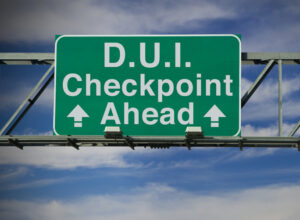If you have been arrested for a DUI at a DUI checkpoint, you might assume that you have few options left to you. If you failed the breathalyzer, then there is no defense left, is there? There might be. One way your DUI attorney could help you is to determine if the DUI checkpoint was legal. If it did not meet these eight requirements and was not legal, then it is possible we can get the breathalyzer results thrown out.
- Operational Decisions Must Have Been Made by a Supervising Officer
- There Must Be Neutral Criteria to Stop Drivers
- The DUI Was Set Up in a Reasonable Location
- Safety Precautions Must Be in Place
- The Right Time and Duration Must Be Followed
- It Must Be Clear That the Checkpoint is Official
- Detention Time Must Be Minimal
- Advance Notice Must Be Given
This requirement is in place to ensure that the checkpoint is run fairly and responsibly. The idea is that a supervising officer will know the rules and regulations. They will act judicially and fairly – not capriciously or arbitrarily.
There must be neutral criteria to stop motorists. Unless the officers have probable cause, they must follow the present, neutral criteria they come up with before starting the checkpoint. For example, they could decide they will stop every fourth car. They cannot deviate from that (without probable cause) or the entire checkpoint could be illegal.
It is not legal for law enforcement to set up a roadblock in any place they would like. Instead, they must set up the checkpoint in a place with demonstrated high instances of DUI accidents or arrests.
While DUI checkpoints are designed to help protect society, if they are set up in the wrong place they can have the opposite effect. This is why they are required to be set up in consideration of where traffic is, street layouts, and the visibility of them.
Officers are required to use good judgment when setting up the checkpoint so that they can be as effective as possible without being overly intrusive to the average driver.
There need to be warning signs, flashing lights, marked police cars, uniformed officers, or some combination of these to ensure drivers know it is an official stop.
Police can only keep a driver at the checkpoint for as long as it takes to check if they are intoxicated. If there is no sign that they are, then they must be allowed to leave.
Police are required to note where and when checkpoints will be set up. This can generally be found on their website.
If you were arrested for a DUI at a checkpoint and all eight of the above elements were not in place, then your arrest might not have been legal. Contact Law Office of Michael L. Fell at (949) 585-9055 for a free legal consultation to determine your options.


